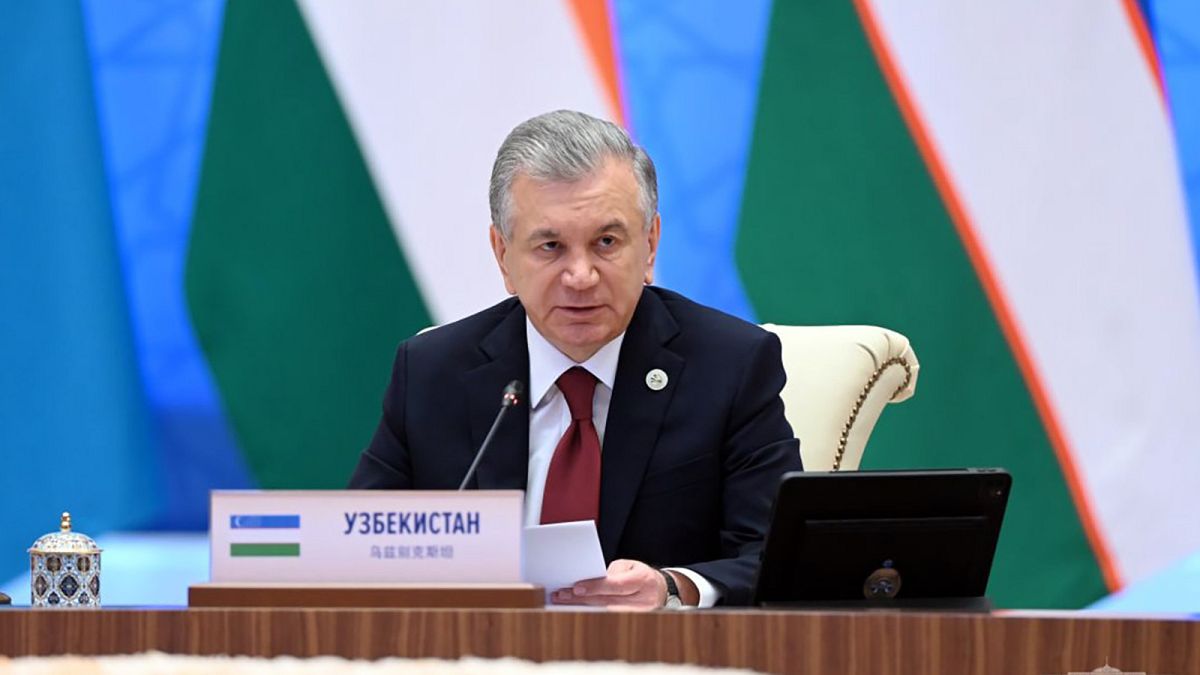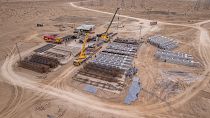As inflation and energy shortages continue to rise in Europe, the Shanghai Cooperation Organisation (SCO) could fill the gap left by Russian sanctions.
At its most recent summit in Samarkand, Uzbekistan, on September 15 and 16, member nations discussed trade and bilateral relations, including opportunities for increasing business between Central Asia and the West.
In the last seven months, low energy production and gas storage levels in Europe have worsened due to EU and US sanctions imposed on Russia as a result of the ongoing conflict in Ukraine.
Several Central Asian members, particularly China, have existing trade ties with the West. However, the summit highlighted the opportunities for other existing and prospective SCO members to forge new trade alliances to meet growing demand in Europe.
The coalition already looks to have enough resources to build an autonomous trading alliance in Europe without Russia, in what could mark a historic departure from the era of globalisation. In November, Samarkand will also host the Samarkand Conference on Connectivity between the European Union and the countries of Central Asia. Bringing together a number of high profile representatives including the President of the Republic of Uzbekistan, Shavkat Mirziyoyev and the High Representative for Foreign and Security Policy and Vice President of the European Commission, Josep Borrell, the conference will focus on cooperation between the regions in the areas of digitalization, transport and logistics, energy and water resources.
Changing the organisational identity of the SCO to a more functional and issue-specific arrangement is instrumental for the organisation to reflect the concerns of its member states.
The aim for many states seems to be to transform the SCO into an organisation with clear economic and infrastructure-oriented goals including new transportation routes, diversified connectivity channels, stable supply chains and promoting wider opportunities for growth generation.
What is the Shanghai Cooperation Organisation?
What started as a regional political, economic and security bloc in 1996 is now one of the world’s largest organisations with more than 30 per cent of the world’s GDP.
With China as its founding member and major economic power, the organisation has grown steadily since 2001, with Pakistan and India joining Uzbekistan, Russia, Tajikistan, Kyrgyzstan and Kazakhstan in 2017.
Today, the SCO covers 60 per cent of Eurasia and 40 per cent of the world population, with Central Asia featuring as its most promising growth region.
The most recent summit hosted observer states from Iran, Afghanistan, Belarus and Mongolia, plus dialogue partners including the UAE, Turkey, Armenia and Iran among others.
Along with trade, priority at the summit was also given to enhancing security, economic and humanitarian cooperation.
Promoting international dialogue — the Samarkand Solidarity Initiative
During the summit, Uzbekistan President Shavkat Mirziyoyev announced the Samarkand Solidarity Initiative, an agreement aimed at ensuring peace and stability, broad international co-operation and promoting the sustainable development of mankind.
The initiative aims to promote an international dialogue “free from geopolitical rivalry, ideological contradictions and disputes”.
“Since ancient times, Samarkand has been a centre of spiritual, economic, cultural and scientific exchange between peoples living in the space from East Asia to North Africa, the Middle East and Europe,” President Mirziyoyev said.
“Over the centuries, a special culture of fruitful communication between representatives of different civilisations has been created here.”
The president also announced the organisation of an international forum to be held in Samarkand in 2023, which was welcomed by the SCO delegates.
In a statement responding to the initiative, the delegates said: “We welcome the Samarkand initiative of solidarity for the sake of common security and prosperity put forward by the President of the Republic of Uzbekistan, aimed at ensuring peace and stability, broad international cooperation and promoting the sustainable development of mankind.”
In tandem, the initiative was conveyed to the UN General Assembly in New York, where it was described as being pursuant to the UN’s Millennial Declaration outlining the world body’s aspirations for peace and security worldwide.
“Its goal is to involve in the global inter-civilisational dialogue all those who are not indifferent to our common future, who are ready, despite disagreements, to seek agreed approaches and solutions, who share the principles of the ‘Samarkand spirit’," said President Mirziyoyev.
“We propose to jointly consider the issues of practical implementation of this initiative at the international Samarkand forum next year with the participation of political leaders, authoritative representatives of the public, business, academic and expert circles.”
President Mirziyoyev said he would soon share a detailed “Programme of Action” with all Uzbekistan partners.
A universal vision
An unprecedented outcome of the summit was the adoption of 44 documents covering both strategic and conceptual agendas.
The agreements identified the comprehensive expansion of mutual trade, the development of infrastructure, industrial cooperation, the acceleration of green and digital transformation, the joint fight against infectious diseases, the negative effects of climate change and several others as the main directions for further deepening mutually beneficial cooperation.
The collective solutions discuss the challenges faced by the international community and are intended to strengthen socio-economic and political stability.




